
Types of Coffee Makers
Different Types of Coffee Makers
Brewing convenience, ease of use, price, volume, and coffee flavor are all important factors to consider when finding the best coffee maker for your business.
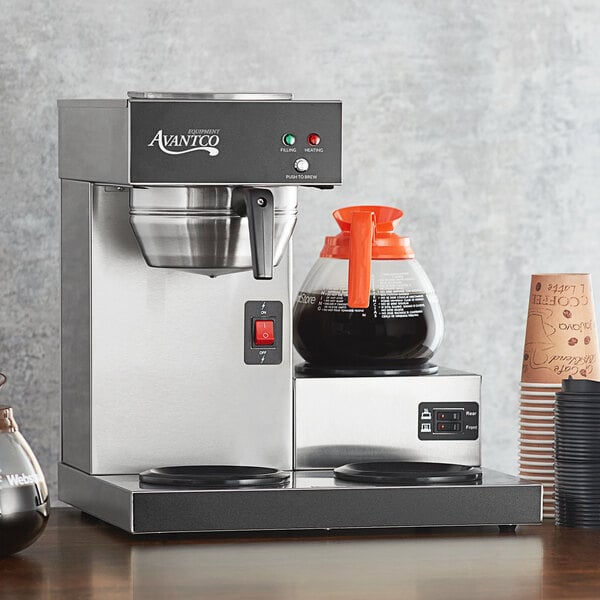
Automatic coffee makers must be attached to a direct water line. By hooking directly up to a water line, these units eliminate the need to constantly fill your machine’s water tank, which allows you to serve your customers faster.
Output: 40 to 240 cups per hour
Best for: diners, offices, and convenience stores
- Water automatically refills from direct line for fast brewing
- Simple controls make it easy to use
- Single brew types or multi-brew options
- Most include a decanter warmer
- Some include a pourover design; ideal for high-volume use
- Limited control over coffee brewing
- Warming plate can burn coffee if it sits on it for too long
- Needs to be set up near a water line connection
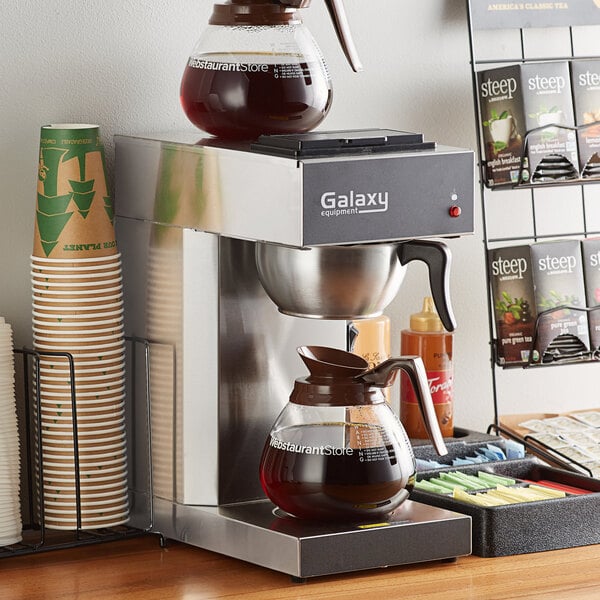
Pourover coffee makers do not need to be attached to water lines, so you will need to fill the machine’s reservoir with water for each brew. These units are portable and easy to set up without any major installation or plumbing procedures required.
Output: 55 to 65 cups per hour
Best for: offices, break rooms, and convenience stores
- Does not need to be attached to a water line
- Portable design is easy to set up in any location near an electrical outlet
- Simple controls make it easy to use
- Most include a decanter warmer
- Ideal for low- to moderate-volume use
- Water needs to be poured into the reservoir for each batch
- Limited control over coffee brewing
- Warming plate can burn coffee if it sits on it for too long
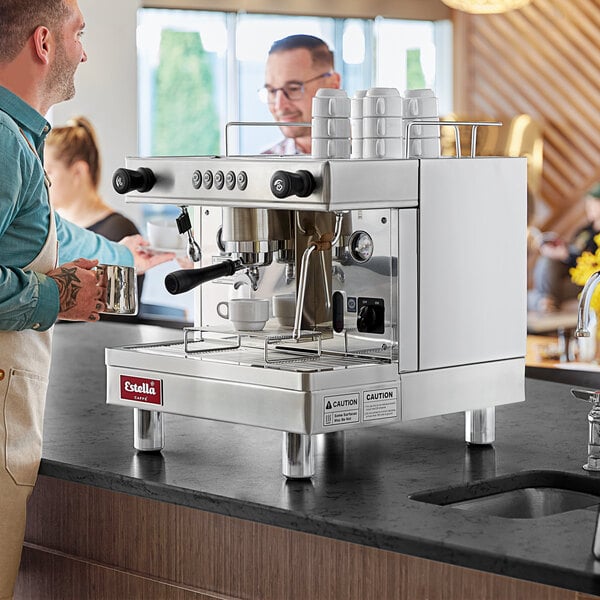
Espresso machines are a type of specialty coffee maker that brew fresh espresso that you can serve as a shot or use as a base to make a variety of specialty coffee drinks. There are manual, semi-automatic, automatic, and super-automatic espresso machines that give a range of control over the brewing process.
Output: (240 to 720) 4 oz. demitasse cups per hour
Best for: coffee shops, cafes, sandwich shops, and restaurants
- Can be brewed from a direct line or pourover
- Ideal for making a variety of specialty beverages like lattes, cappuccinos, and macchiatos
- Many include features like built-in grinders or steam wands for frothing milk
- Can be expensive
- Can have a learning curve depending on the type of machine
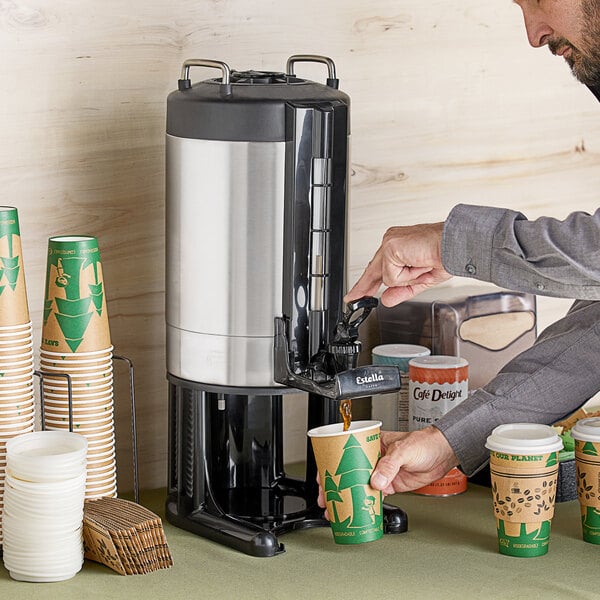
Satellite coffee makers are designed to brew coffee into insulated servers, thus allowing you to brew coffee in one location and then bring the coffee to another setting such as a self-service station.
Output: 10 to 302 cups per hour
Best for: catering, banquet halls, cafeterias, buffets, and restaurants
- Brews from direct line into airpots
- Some are designed to fill several coffee servers at once
- Many feature hot water spouts to make tea or hot chocolate; Ideal for high-volume service
- Unit needs to be set up near a water line connection
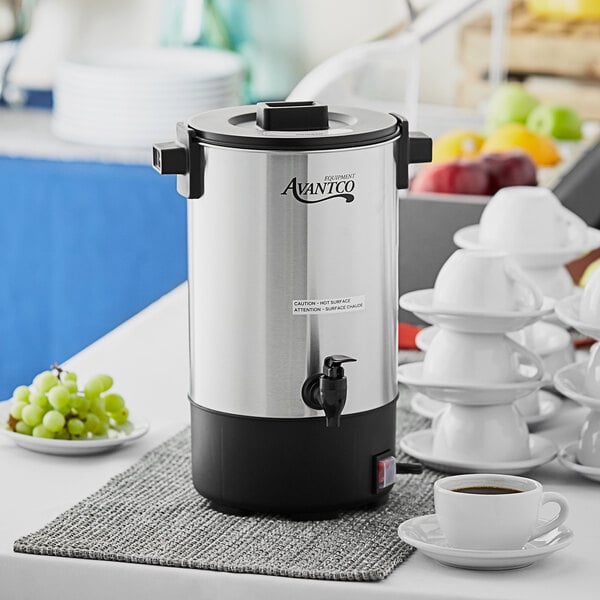
Coffee machine urns are designed to brew, hold, and serve coffee with one unit for maximum convenience. They are ideal for self-service stations at private events. We also offer high-volume coffee urns that are perfect for large crowds.
Output: 22 to 69 cups per hour
Best for: caterers, schools, churches, and offices
- Allows you to brew, hold, and serve coffee from one machine
- Insulated tanks keep coffee at optimal serving temperature
- Sightglass provides brew level visibility so staff knows when to refill
- Feature cool-touch handles for easy transportation
- Limited control over coffee brewing
- May not come with a drip tray
- Stainless steel exterior gets hot and is dangerous to touch
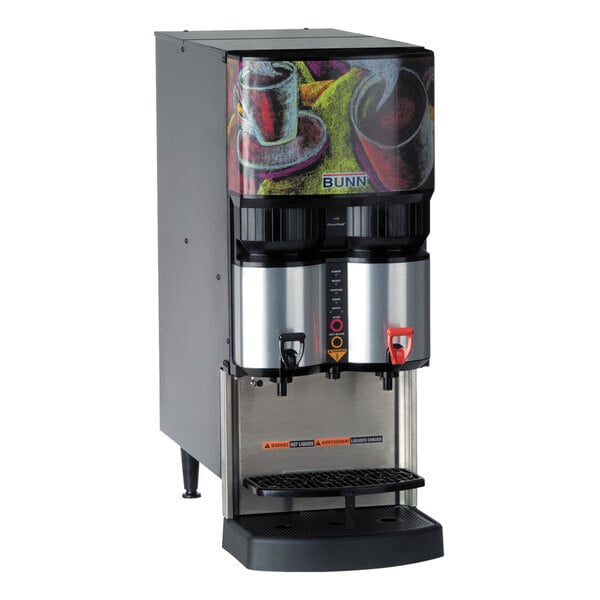
Liquid coffee dispensers use a bag-in-box system for fast dispensing from a direct water line, making it quick and easy to load and dispense coffee. Because there is no brewing required, these dispensers eliminate labor costs associated with the frequent brewing and oversight of traditional coffee brewers.
Output: 62 1/2 to 400 cups per hour
Best for: cafeterias, hospitals, convenience stores, and buffets
- No brewing required
- Fast dispensing time
- Ideal for high-volume self-service applications
- Some models feature LED refill lights to alert when concentrate is running low
- Expensive
- No control over the coffee's flavor
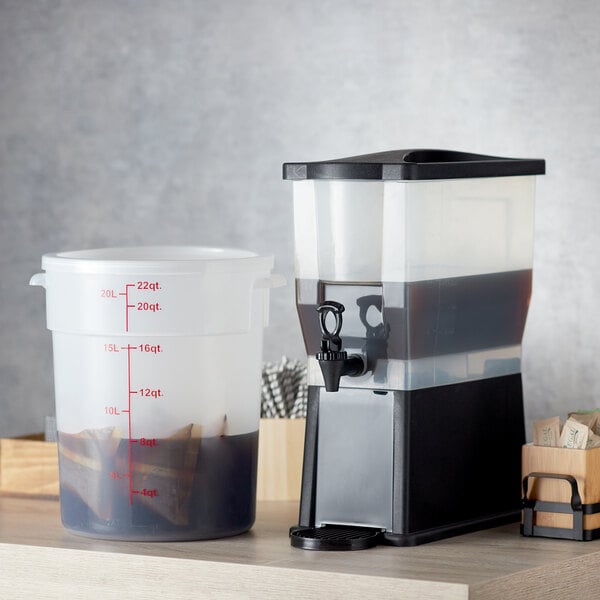
Cold brew coffee is made by steeping ground coffee in cool or cold water for 12 to 24 hours. Prepared cold brew concentrate can be stored for up to 2 weeks in an airtight container in the refrigerator.
Output: 3 to 20 gallons per extraction
Best for: coffee shops, bakeries, restaurants, and diners
- Cold-brew extraction process brews full-bodied, aromatic coffee
- Cold brew concentrate can last a long time
- Concentrate can be used to make hot or iced coffee
- Takes a long time to brew
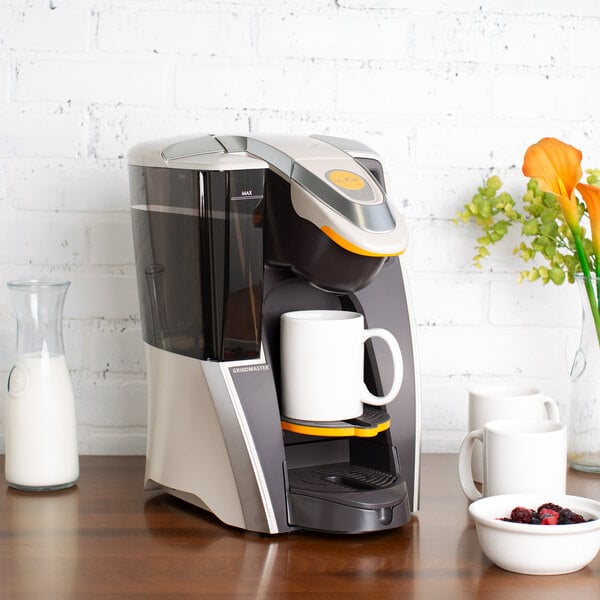
Great for self-service, single cup coffee makers are perfect for brewing single portions of coffee in hotel rooms, lobbies, and conference rooms without the hassle of a big and bulky machine.
Output: 1 cup at a time
Best for: hotel rooms, vacation homes, break rooms, and waiting rooms
- Easy for anyone to use
- Quickly brews coffee
- Can accommodate multiple cup sizes
- Able to make a wide variety of coffee and hot beverage drinks
- Some have programmable timers and auto-shutoff features
- Compact design won't clutter countertops
- Capsules may not be recyclable
- Typically have a small water reservoir
- Not ideal for high-traffic areas
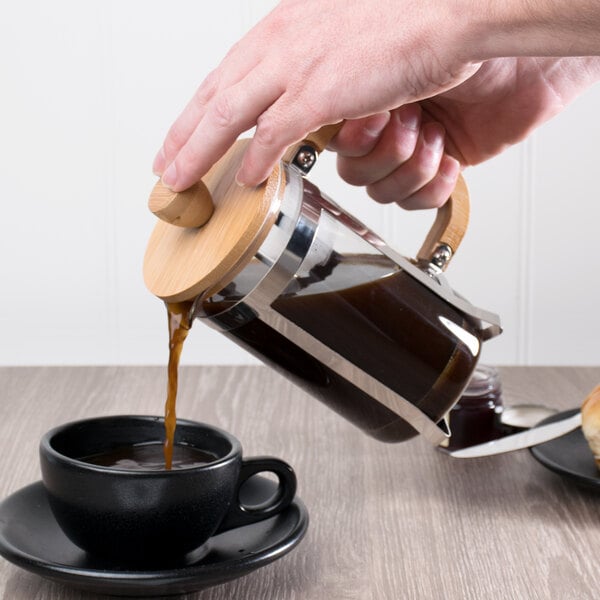
During the French press brewing process, the coffee grounds stay in contact with the water throughout the entire brewing period. A French press filters the brew directly through a metal mesh filter, which allows the essential oils found in the grounds to remain in the brew. The result is stronger, richer coffee with a more aromatic flavor.
Output: 1 to 4 cups at a time
Best for: restaurants, cafes, coffee shops, bakeries, and vacation rentals
- Keeps delicate coffee flavors in tact
- Steeping time is easily controlled
- Easy to use and clean
- Visually appealing and popular for direct table service
- Glass pots are fragile
- Does not keep your beverage warm, so brewed coffee must be drank immediately
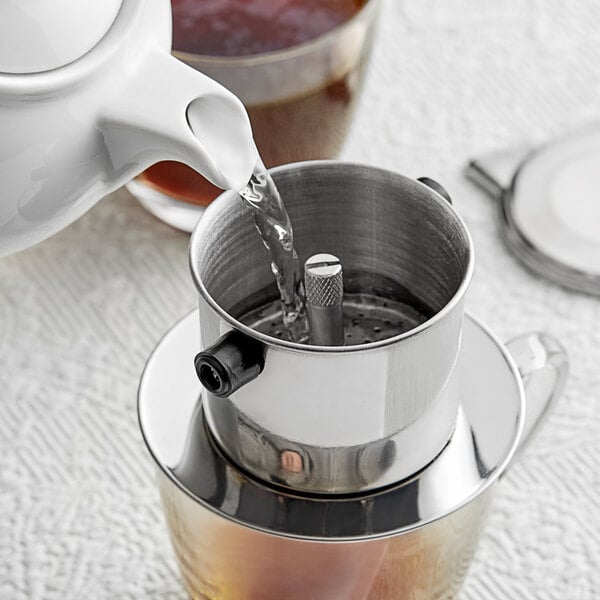
A Vietnamese coffee press, or phin, consists of four parts: a perforated filter plate, a brew chamber, a perforated filter press, and a lid to keep the heat in. It typically brews into a cup that is filled with a small amount of sweetened condensed milk or coconut milk.
Output: 1 cup at a time
Best for: coffee shops, bakeries, restaurants, and cafes
- Portable design
- Great for offering specialty drinks
- Easy to clean
- Brews bold, flavorful coffee
- Longer brewing time
Selecting the Correct Voltage for Your Coffee Maker
Choosing the correct voltage is an important factor when selecting a coffee maker. Typically, the higher the voltage, the faster the machine's recovery time is. Therefore, establishments with a high demand for coffee should look into coffee makers with a higher voltage rating.
To decide on the correct voltage you'll need, you should ask yourself two questions:
- How much coffee will you make on an average day?
- Is your business outfitted correctly for the applicable voltage?
Many coffee machine types come with ratings of cups per hour, generally referring to 5 or 8 oz. portions, to help you decide what unit is best for you. Additionally, you'll need to make sure you have the correct electrical setup for the machine you require. 120V units can often be plugged into a common wall outlet, whereas 208V and 240V machines may require a different outlet formation.
Commercial Coffee Maker Accessories
In addition to choosing the best coffee maker, ensure you have all the accessories you need to brew the perfect cup of joe!
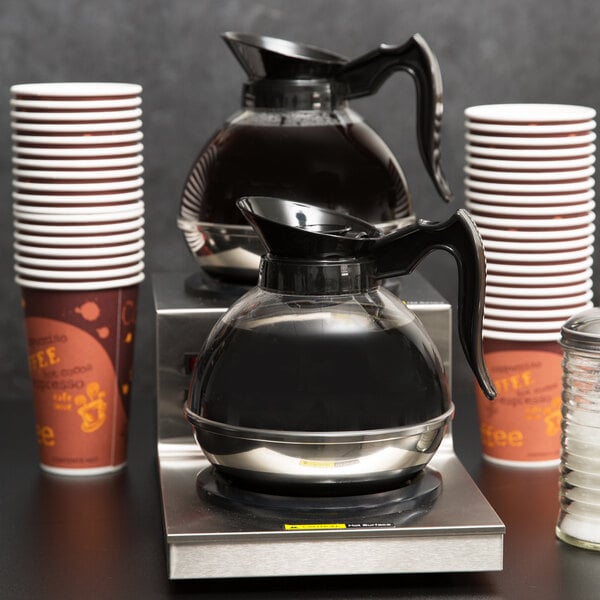
- Keep brewed coffee hot and ready to serve to customers
- Reduce lines and crowding around your machine
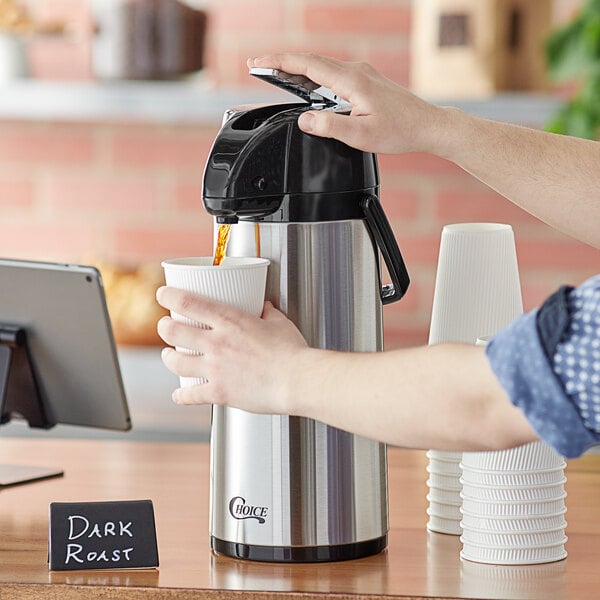
- Choose the right coffee airpot keep beverages hot using insulation
- Perfect for placing at self-service stations
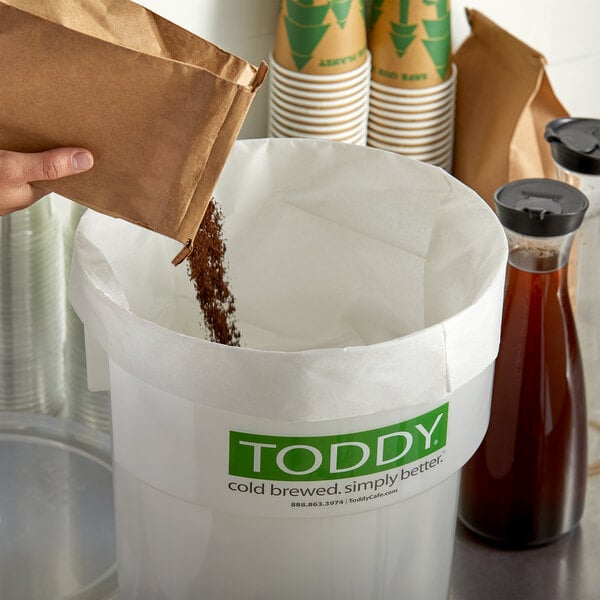
- Keep grounds safely away from brewed coffee
- Easy to use and replace for a more economical experience
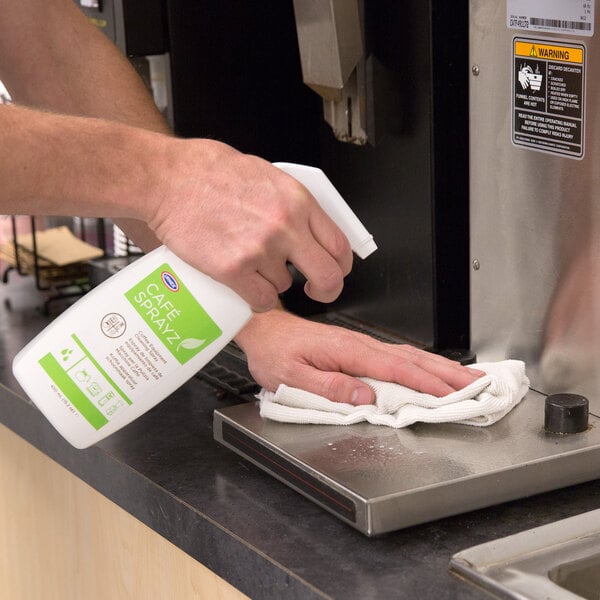
- Eliminate buildup in your coffee maker to maintain equipment quality
- Clean your coffee maker at least once every six months
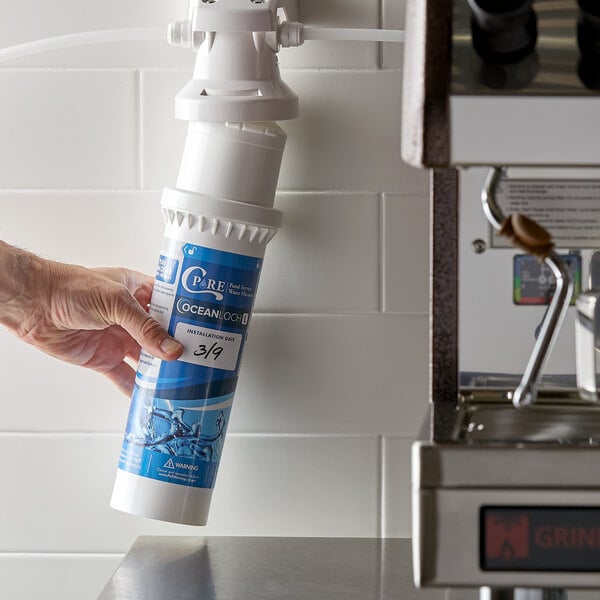
- Block contaminants from infiltrating beverages
- Prevent scale, sediment, and cysts from clogging your coffee machine
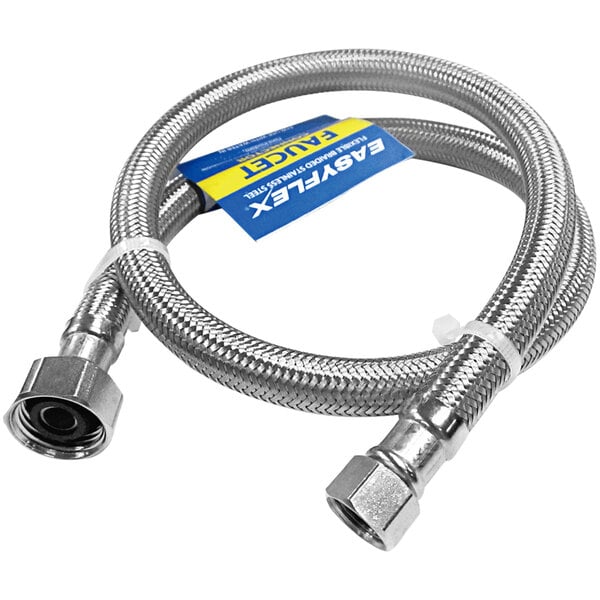
- Gurantee proper connection to your water line
- Keep equipment in working order all day long
Related Resources
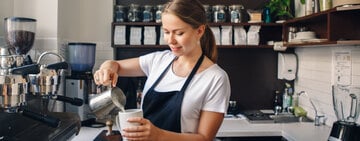
How to Start a Coffee Shop
The coffee industry is experiencing a period of growth as many of the younger generations become interested in not just coffee, but high-quality gourmet coffee and house-roasted beans that they can only get from a coffee shop. As a result of increased interest in coffee, it's a great time to consider opening a coffee shop or cafe. If you're interested in starting a coffee shop but don't know where to begin, refer to this article because we will detail the most important steps you need to follow to set up your business. Shop All Coffee Supplies For more information on a specific part of the cafe opening process, you can use the links below to jump to the section. Conduct Research Create a Concept Source Your Coffee Beans Write a Coffee Shop
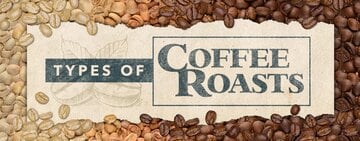
Types of Coffee Roasts
If you operate a cafe, you'll know that having a well-rounded coffee drink menu is essential to the success of your business. With over 54% of Americans over the age of 18 drinking at least one cup every day, the quality and roast color of your coffee and espresso beans can mean the difference between a great cup of coffee and a disappointment for your customers. Familiarize yourself with the different types of coffee roasts so you can make the best supply choices for your coffee shop or diversify your coffee roasting business offerings. Shop All Coffee Roasters

Coffee Shop Equipment List
You have a business plan for opening your coffee shop, a great location, and the perfect name with an awesome logo to go with it. Now that it's time to set up the shop, you might be unsure where to start. Even though specific requirements will vary from business to business, there are essential items new coffee shops require. If you're ready to take your coffee shop from a dream to a reality , check out our coffee shop equipment list below. Shop All Coffee Shop Supplies Use the following links to explore different types of coffee shop equipment: Coffee, Espresso, and Beverage Equipment Barista Tools Coffee Shop Accessories Coffee Shop Ingredients Disposable Coffee Shop Supplies Coffee Equipment Cleaning Tools Miscellaneous Barista Supplies
- Topics 1346
- Industrial 55
- Troubleshooting Guides 21
- Restaurant Management 128
- Bar Management 55
- Catering Tips 35
- Bakery Management 42
- Food Trucks & Concessions 49
- Advertising & Marketing 37
- Eco-Friendly Tips 11
- Facility Layout & Design 41
- Coffee Shop Tips 28
- Installation & Maintenance 51
- Janitorial & Pest Control 30
- Safety & Sanitation 88
- Startup Tips 104
- Menu Design 10
- Kitchen & Cooking Tips 81
- Hospitality Management 23
- Pizza & Sandwich Shop Tips 36
- Smallwares 37
- Food Prep 88
- Tabletop Items 17
- Disposables 22
- Calculators & Tools 6
- Consumables 52
- Warewashing & Laundry 18
- Cooking Equipment 90
- Food Storage & Refrigeration 51
- Beverage Equipment 34
- Office Supplies 6
- Resource Type
- In-Depth Articles272
- Buying Guides296
- How-Tos93
- Product Reviews77


